Are you gearing up to negotiate your salary and unsure where to start? Crafting the perfect letter can set the stage for a productive discussion with your employer. It's essential to clearly articulate your value and provide compelling evidence to support your request. Ready to take the next step in your career? Let's explore effective strategies for writing a salary negotiation letter!

Clear subject line
Subject: Request for Salary Adjustment Discussion A recent analysis of industry standards and cost of living adjustments prompts this request regarding the salary for my position as Senior Marketing Specialist at XYZ Corporation. Research indicates that the average salary for similar roles in our sector, particularly in metropolitan areas like New York City, hovers around $85,000 annually, while my current compensation stands at $70,000. Given my contributions, including a 25% increase in lead generation over the past year and the successful implementation of a high-impact campaign that improved brand visibility across digital channels, a reassessment of my salary level appears warranted. This adjustment would reflect both my dedicated efforts and alignment with market standards. A meeting to discuss this further would be appreciated.
Professional greeting
A professional greeting in a salary negotiation letter typically begins with a courteous and respectful address. For example, "Dear [Manager's Name]," or "Hello [Manager's Title] [Last Name]," establishes a tone of professionalism and sets a positive atmosphere for the discussion that follows. The inclusion of the recipient's title and last name emphasizes respect and acknowledges their position within the organization, which is critical in maintaining a professional demeanor during negotiations.
State the purpose
Negotiating a salary is an important aspect of career advancement, particularly in competitive industries. Understanding one's market value, especially based on factors such as years of experience, educational background, and skills, plays a crucial role in this process. The current economic climate, including inflation rates and industry growth trends, further influences salary discussions. Clear communication with key stakeholders, such as human resources or direct supervisors, is essential for effectively articulating one's contributions to the organization, ensuring that discussions remain constructive and focused on mutual benefits. Researching the standard salary range for similar positions within geographic locations, such as New York City or San Francisco, can provide a solid foundation for negotiations, enhancing the chances of a favorable outcome.
Justification with achievements
Achieving a 20% increase in sales revenue during the last fiscal year demonstrated my ability to drive results and contribute meaningfully to the team's objectives at XYZ Corporation. The successful launch of the innovative product in March 2023, which captured a significant market share, showcased my project management skills and strategic planning capabilities. Additionally, maintaining a customer satisfaction score above 90% highlights my commitment to client relations and service excellence. These accomplishments not only align with the company's growth targets but also justify a review of my current salary to reflect my contributions and the value I bring to the organization.
Proposed salary figure and closing remarks
Proposed salary figures in salary negotiations should be grounded on market research and aligned with industry standards. For instance, data from the Bureau of Labor Statistics may suggest that software engineers in New York City earn an average salary of $120,000 annually. Considering years of experience, specialized skills, and contributions to the company's growth could justify a proposal of $130,000. Closing remarks in a negotiation demonstrate enthusiasm and readiness to contribute. Expressing appreciation for the opportunity while reiterating commitment to enhancing team performance can leave a positive impression. Employing a confident yet courteous tone fosters a constructive dialogue.

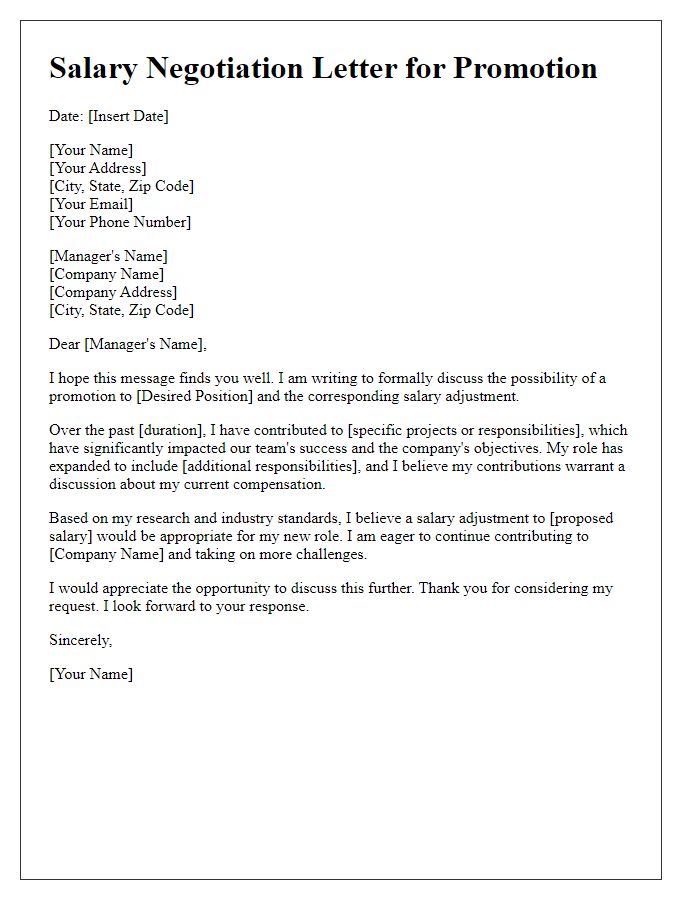
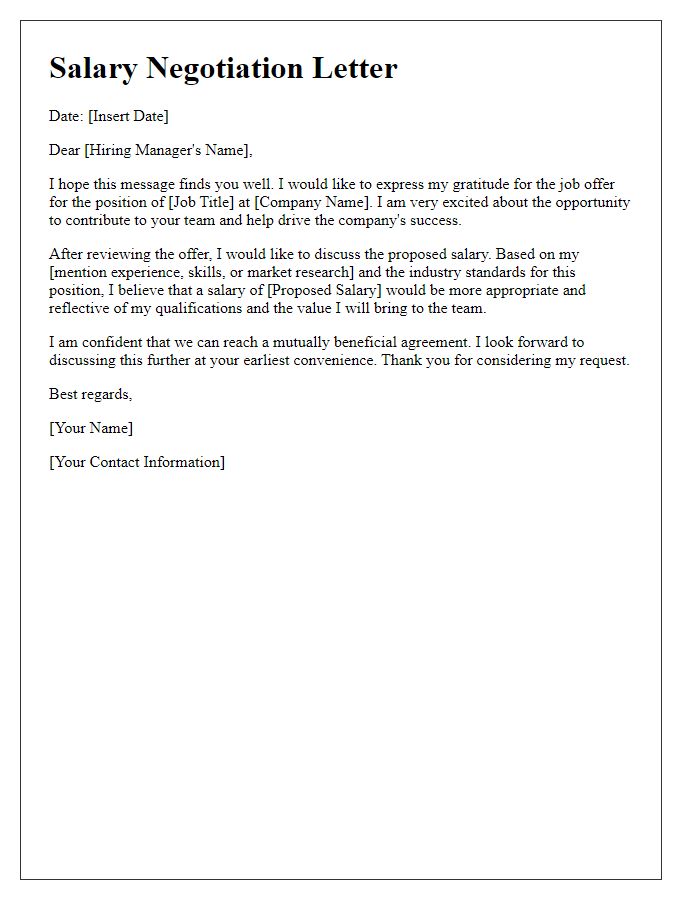
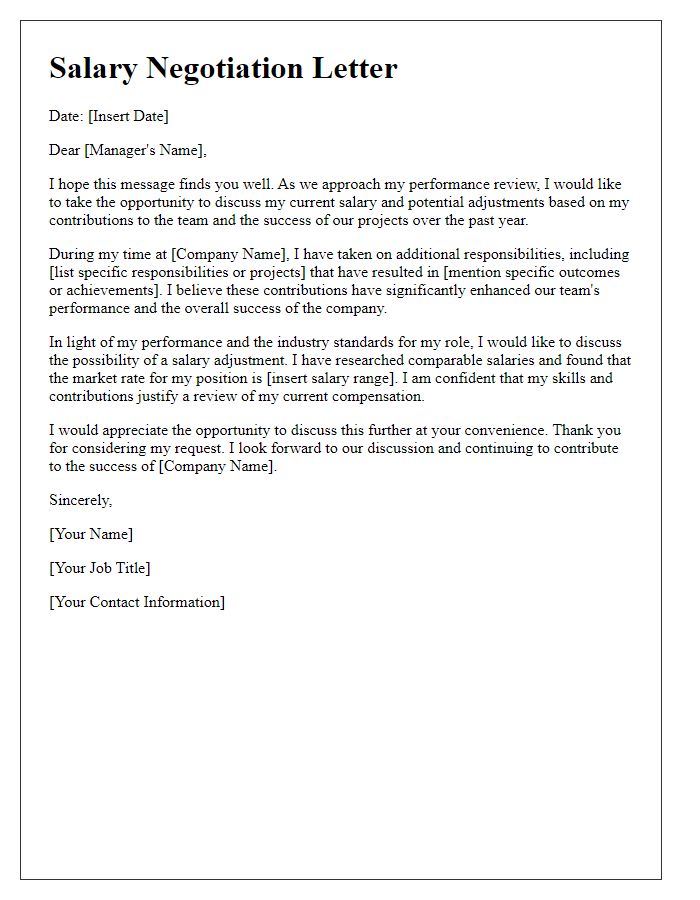
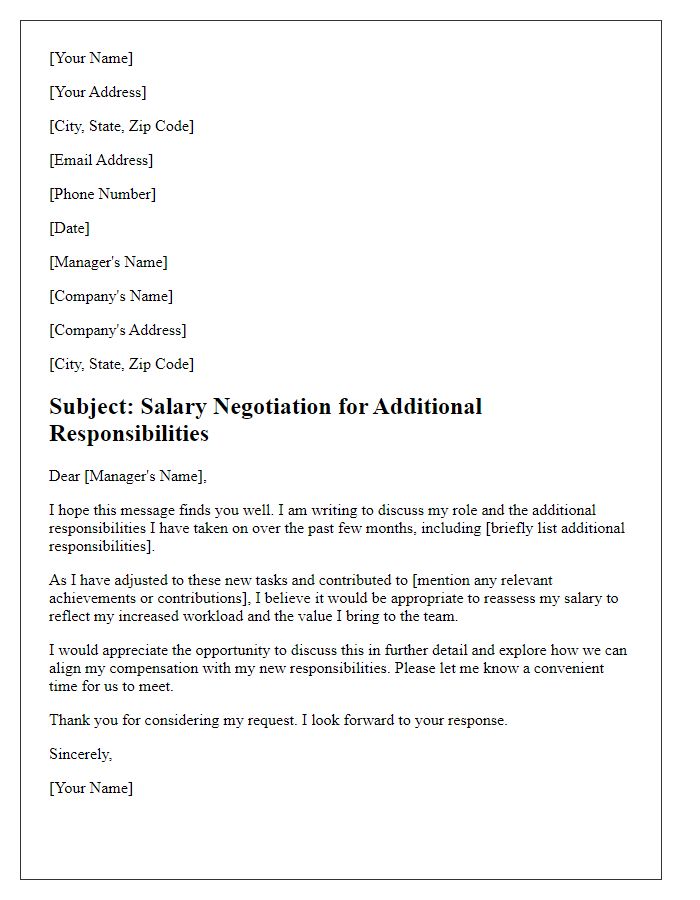
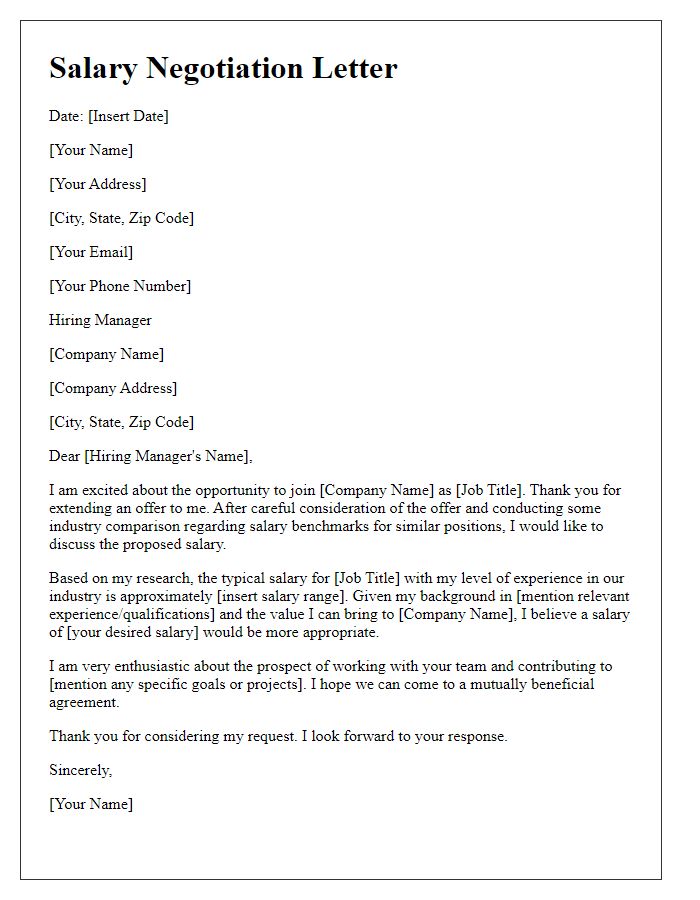
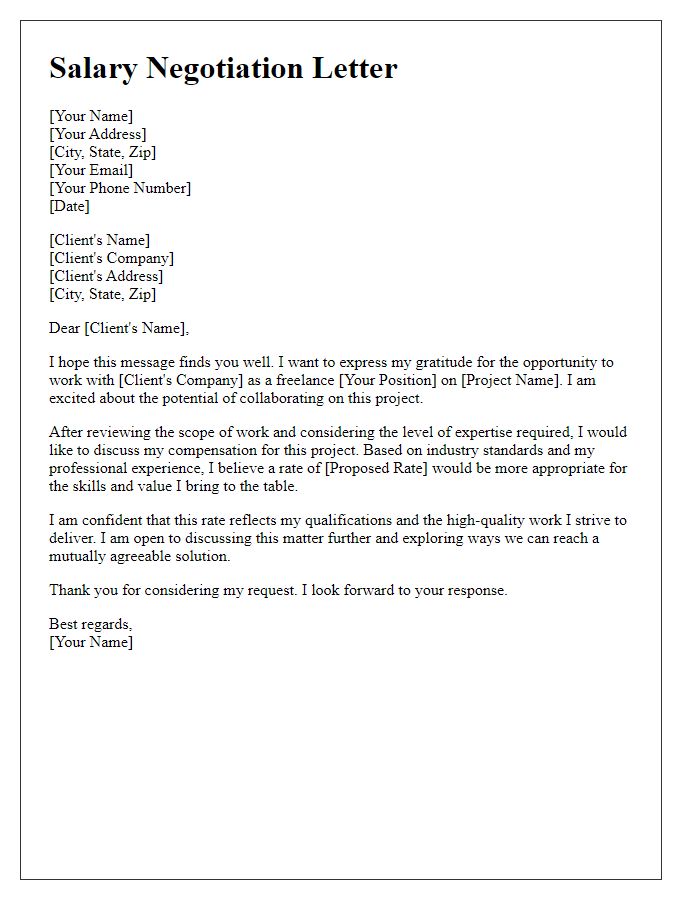
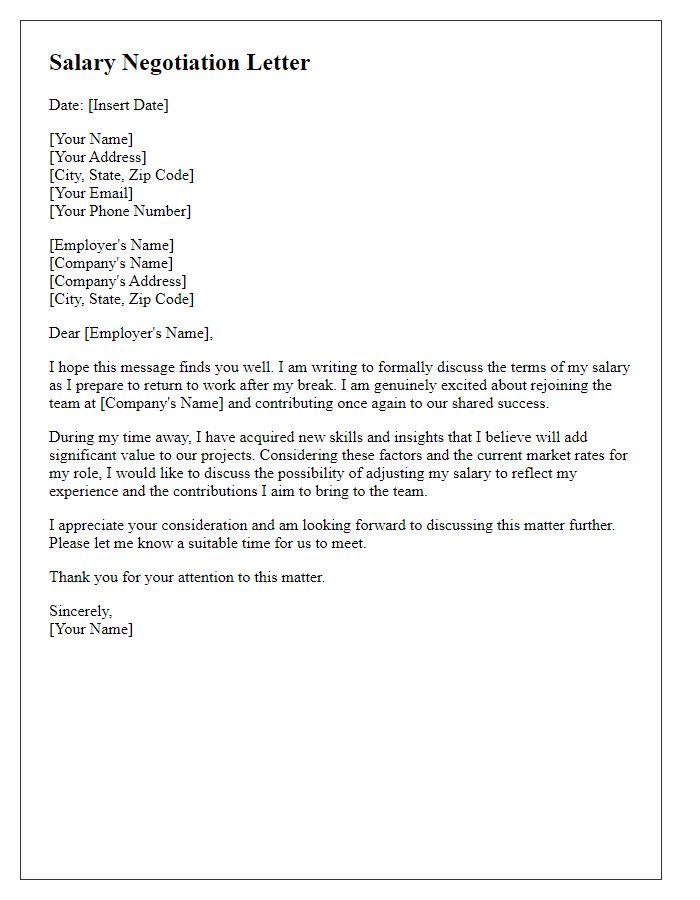
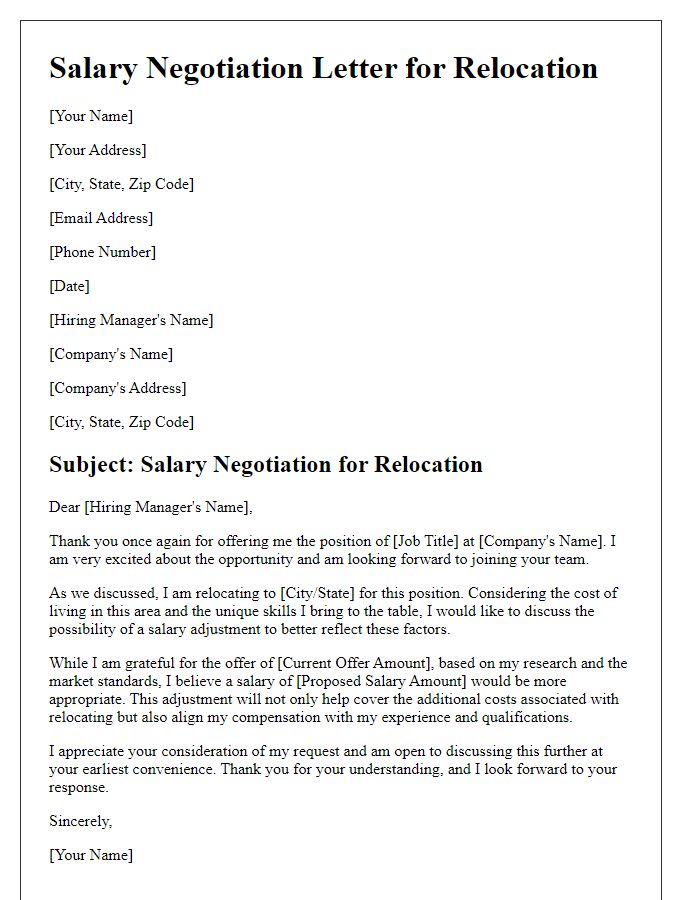
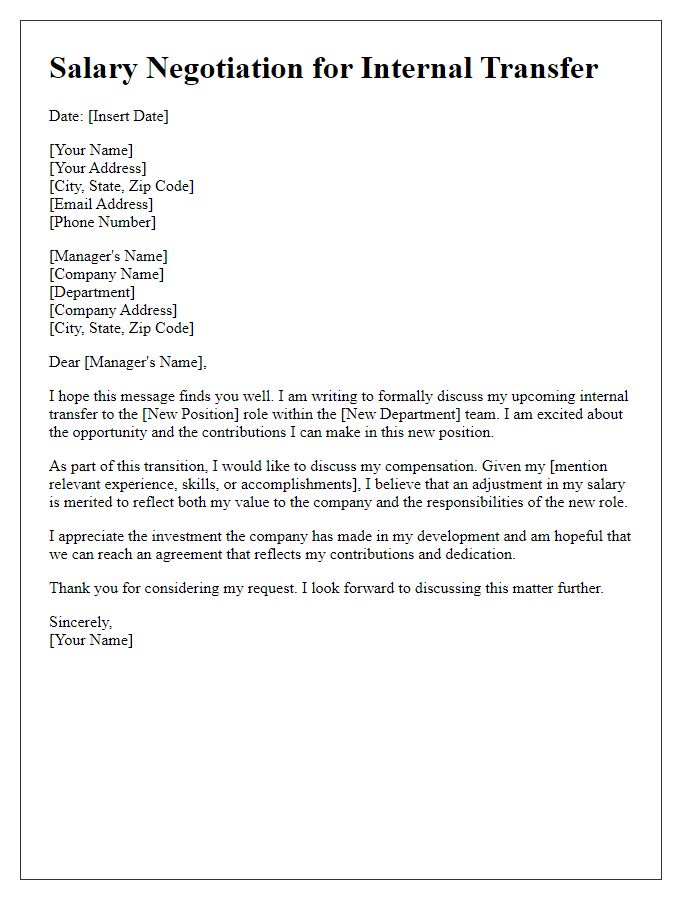
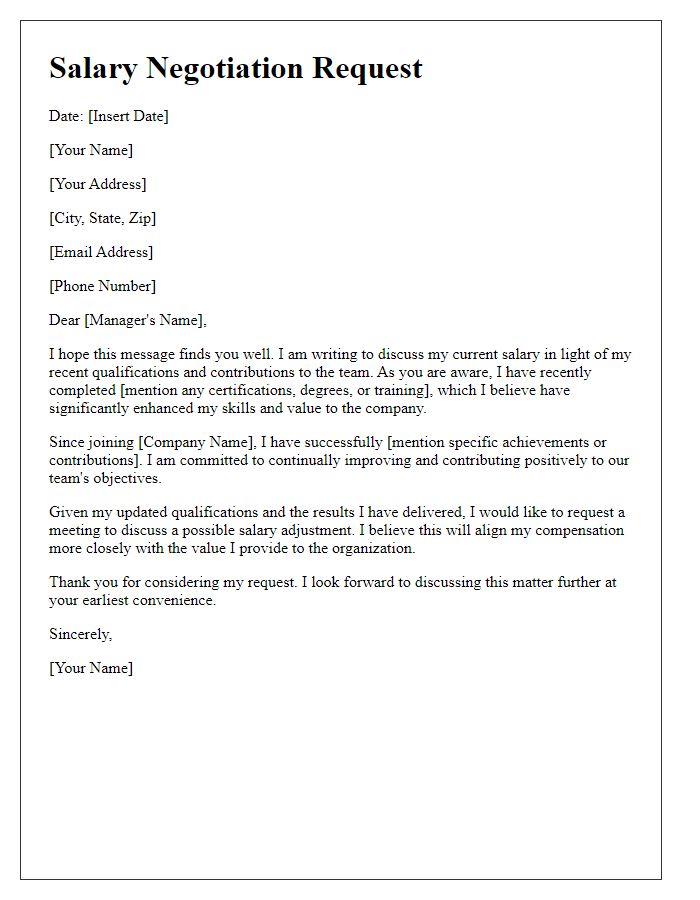


Comments